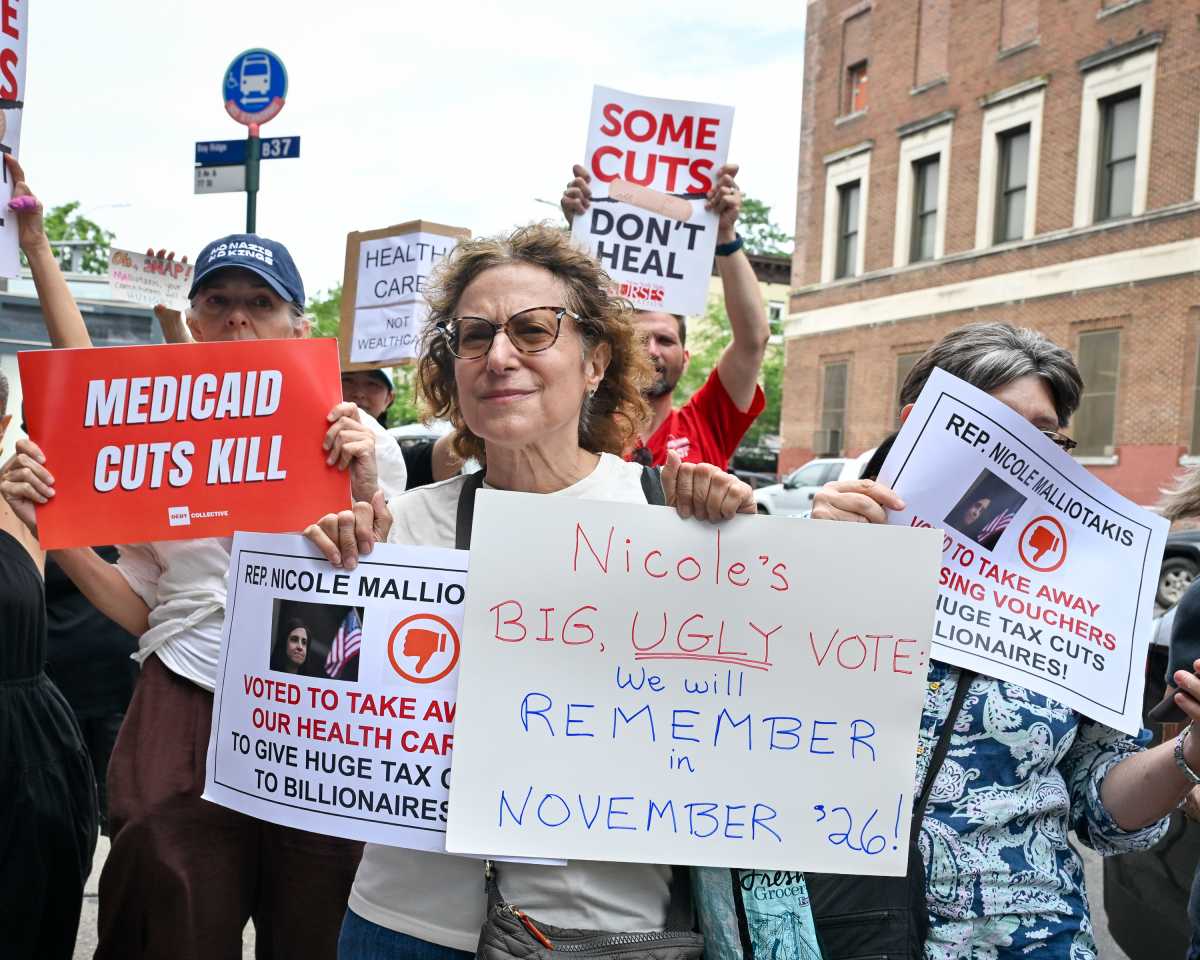Borough Park’s Maimonides Medical Center, which delivers more babies than any other hospital in the city, joined Mayor Bill de Blasio, First Lady Chirlane McCray, hospital and health professionals and elected officials in kicking off an initiative to treat the thousands of women suffering from postpartum depression.
“More than 10,000 women in New York will suffer postpartum depression and its devastating consequences next year. We owe it to them, their children and our communities to provide the kind of care that can guarantee their families a healthy start; the kind of care we’d want for our own moms. That care starts with screening and identification and it’s a great way to ThriveNYC,” said Pam Brier, President and Chief Executive Officer of Maimonides Medical Center.
Depression during and in the months following pregnancy is common. At least one in ten women suffers from it – at least 10,000 women a year in New York City. Maternal depression can negatively affect both infant health and the mother’s lifelong mental health.
Maternal depression is treatable, and it can also potentially be prevented with simple supports and counseling for more at-risk pregnant women. One estimate found that these methods, if widely applied in NYC, could prevent nearly 3,000 women a year from suffering from postpartum depression. Screening and providing early treatment to every pregnant woman will improve the lives of families across the city.
“I want to tell new and soon-to-be new mothers here in New York City: If you need help, you are not alone. Help is available, and we will make sure you get it,” said de Blasio. “Screening and treatment for maternal depression should be a part of routine care. Today, we’re taking an important step toward making that a reality in New York City.”

“Maternal depression is common and treatable. Right now, too many pregnant women and new mothers don’t get the attention they should, and they are afraid to seek help because they worry about being judged,” said McCray. “It’s time to have a more open conversation about maternal depression. By giving new moms the type of care and support they need, we help them – and whole families – be healthier and happier.”
Under the initiative, the city is setting a goal to screen and treat all pregnant women and new mothers for maternal depression. As the first step toward this goal, NYC Health + Hospitals, formerly HHC, and Maimonides Medical Center – who together perform approximately one-quarter of all deliveries in New York City – have committed to achieve universal screening and connection to treatment for maternal depression within two years.
The Greater New York Hospital Association will at the same time develop and launch a learning network of hospitals across the city that will also take on this goal. Both the American Medical Association and the American Congress of Obstetricians and Gynecologists recommend that clinicians screen for maternal depression.
“Maternal depression is a secret epidemic that impacts mothers and their babies across all economic, social, racial, ethnic and cultural boundaries,” said Elie Ward, MSW, Director of Policy and Advocacy for New York State Academy of Pediatrics. “It is a public health epidemic impacting the health and wellbeing of thousands of mothers and babies across the city. Today’s announcement is an important step to move New York City toward universal screening and access to treatment which will lead to healthier moms and healthier babies. The NYSAAP strongly supports the First Lady and her partners in this first step toward universal maternal depression screening and treatment for all New York City families.”
Also supporting the initiative is several key elected officials.

“This commitment would provide vitally important postpartum depression screenings and connections to treatment for pregnant and postpartum New Yorkers,” said Senator Kirsten Gillibrand. “All new mothers should receive these screenings as part of their routine medical care, and this new initiative would help us achieve that goal.”
“For too long the topic of depression and mental health has not been adequately addressed in our society, especially when connected to new mothers. With this commitment, more women will be able to feel the support and safety they deserve as they take on their new and continuing role of motherhood,” stated Public Advocate Letitia James.

“Many new mothers have struggled in silence with maternal depression, which can put them and their newborns at risk. Fortunately, help is available; screening and treatment are simple solutions that put new families on the early road to good mental health. As part of my Family Friendly Brooklyn initiative, I have partnered with the Seleni Institute to conduct maternal depression screening trainings and referral workshops in our borough. Today, I am pleased to see these efforts expand with the commitment to universal screening and treatment at NYC Health + Hospitals and Maimonides Medical Center within the next two years. I applaud the City for leading on this partnership, and I urge the State to do its part by fully funding the maternal depression screening bill signed into law last year, funding that will save money long-term while helping thousands more women facing this common condition,” said Brooklyn Borough President Eric L. Adams.
Signs and symptoms of maternal depression can range from mild to severe. Symptoms may include feeling sad, hopeless or overwhelmed; crying a lot; having no energy or motivation; having trouble focusing, remembering or making decisions; sleeping too little or too much; having thoughts about hurting yourself, that something terrible might happen to the baby or that you might hurt the baby, and more. New York City offers a number of supports for pregnant women and new mothers experiencing depression. For more information, click here.










